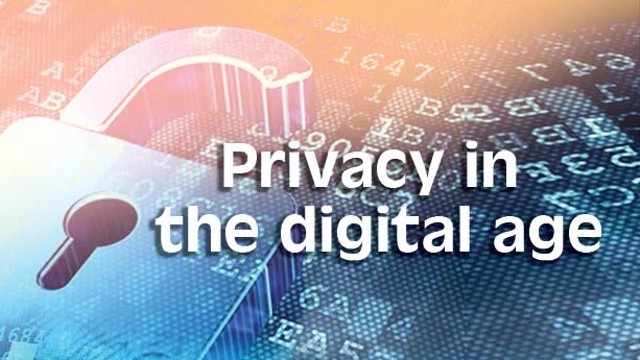Protecting Privacy in the Digital Age

In an era where personal data is often considered the new oil, maintaining privacy has become a significant concern for individuals worldwide.
The rise of the internet and digital technologies has made it easier than ever to share and access information, but it has also made it increasingly challenging to protect one’s privacy. One effective way to safeguard privacy is through anonymity.
This article explores the concept of anonymity, its benefits, and how it can be used to protect privacy, while weaving in the example of a user known as “iamnobody89757.”
Related content that deals with mysterious usernames on internet.
The Importance of Privacy
Privacy is a fundamental human right recognized by various international bodies, including the United Nations. It is essential for maintaining human dignity, personal autonomy, and freedom of expression. In the digital realm, privacy protection becomes even more critical due to the potential misuse of personal data by corporations, governments, and malicious actors.
Facts and Figures
- According to a 2020 report by the Pew Research Center, 79% of Americans are concerned about the way their data is being used by companies.
- A 2019 study by the European Union Agency for Cybersecurity (ENISA) found that 64% of Europeans are worried about their online privacy.
Understanding Anonymity
Anonymity refers to the state of being unidentified or unidentifiable within a particular context. In the digital world, it means using tools and techniques to hide one’s identity when engaging in online activities. This can be achieved through various methods, such as using pseudonyms, encryption, and anonymous browsing tools.
Historical Context
The concept of anonymity is not new. Throughout history, individuals have used pseudonyms or remained anonymous to protect themselves from persecution, censorship, or social stigma. Famous examples include authors like George Eliot (Mary Ann Evans) and Mark Twain (Samuel Clemens), who used pen names to separate their private lives from their public personas.
Methods of Achieving Anonymity
There are several ways to achieve anonymity online. Each method offers different levels of protection, and often, a combination of methods is used for enhanced security.
Pseudonyms
Using pseudonyms or fake names is one of the simplest ways to achieve anonymity. A pseudonym separates an individual’s real identity from their online persona, making it difficult for others to trace activities back to them. For instance, the user “iamnobody89757” might choose this username to engage in online forums or social media without revealing their true identity.
Virtual Private Networks (VPNs)
VPNs encrypt internet traffic and route it through a remote server, masking the user’s IP address and location. This makes it harder for websites and online services to track the user’s activities and location.
Tor Network
The Tor network is a free, open-source software that enables anonymous communication by directing internet traffic through a worldwide volunteer network of servers. This hides the user’s location and usage patterns, providing a high level of anonymity.
Anonymous Browsing
Web browsers like Tor Browser and privacy-focused browsers like Brave and Firefox with certain extensions can help users browse the internet anonymously by blocking trackers and encrypting communications.
Cryptocurrency
Using cryptocurrencies like Bitcoin for transactions can provide anonymity, as they allow for peer-to-peer transfers without the need for a central authority or the disclosure of personal information.
Benefits of Anonymity
Maintaining anonymity online offers several benefits, particularly in protecting privacy and personal security.
Protection from Surveillance
Governments and corporations often engage in mass surveillance, collecting data on individuals’ online activities. Anonymity can help protect against unwarranted surveillance and data collection.
Freedom of Expression
Anonymity allows individuals to express their opinions freely without fear of retribution. This is particularly important in countries with oppressive regimes or strict censorship laws.
Protection from Cyber Threats
Anonymity can help protect against various cyber threats, such as hacking, stalking, and identity theft. By hiding their real identity, individuals can reduce the risk of becoming targets of cybercriminals.
Avoiding Discrimination
In some cases, revealing one’s identity can lead to discrimination based on factors like race, gender, sexual orientation, or political beliefs. Anonymity allows individuals to participate in online activities without facing such biases.
Challenges and Limitations
While anonymity offers significant benefits, it also presents certain challenges and limitations.
Legal and Ethical Concerns
Anonymity can be misused for illegal activities, such as cyberbullying, harassment, and the spread of misinformation. Balancing the right to anonymity with the need to prevent abuse is a complex legal and ethical issue.
Technical Challenges
Achieving complete anonymity is technically challenging and often requires a combination of tools and practices. Users must be vigilant about their online behavior to avoid inadvertently revealing their identity.
Trust and Credibility
Anonymous users may face difficulties in establishing trust and credibility. In some contexts, such as professional networking or business transactions, anonymity might be a disadvantage.
Case Study: “iamnobody89757”
The user “iamnobody89757” is an example of how individuals can leverage anonymity to protect their privacy online. By choosing a unique and nondescript username, this individual can participate in online communities, share opinions, and access information without revealing their true identity. This level of anonymity helps protect them from potential online threats and preserves their personal privacy.
Practical Steps to Stay Anonymous Online
To maintain anonymity online, individuals can follow several practical steps:
Use Strong Pseudonyms
Choosing a strong, unique pseudonym that is not linked to one’s real identity is crucial. Avoid using any personal information in usernames or email addresses.
Employ Encryption
Using encryption tools for communication, such as end-to-end encrypted messaging apps like Signal or Telegram, ensures that messages cannot be intercepted and read by third parties.
Regularly Update Privacy Settings
Regularly reviewing and updating privacy settings on social media platforms and other online services can help limit the amount of personal information that is publicly available.
Be Cautious with Public Wi-Fi
Public Wi-Fi networks are often insecure and can be used by attackers to intercept data. Using a VPN when connected to public Wi-Fi can help protect against such threats.
Limit Sharing Personal Information
Being mindful of the amount and type of personal information shared online can significantly enhance privacy. Avoid sharing sensitive information unless absolutely necessary.
Conclusion
In a world where personal data is increasingly vulnerable to misuse, maintaining anonymity can be a powerful tool for protecting privacy. By understanding and implementing various methods of achieving anonymity, individuals can safeguard their personal information and enjoy greater freedom and security online. The example of “iamnobody89757” illustrates how a simple pseudonym can provide significant privacy benefits, empowering users to navigate the digital landscape safely and confidently.






One Comment